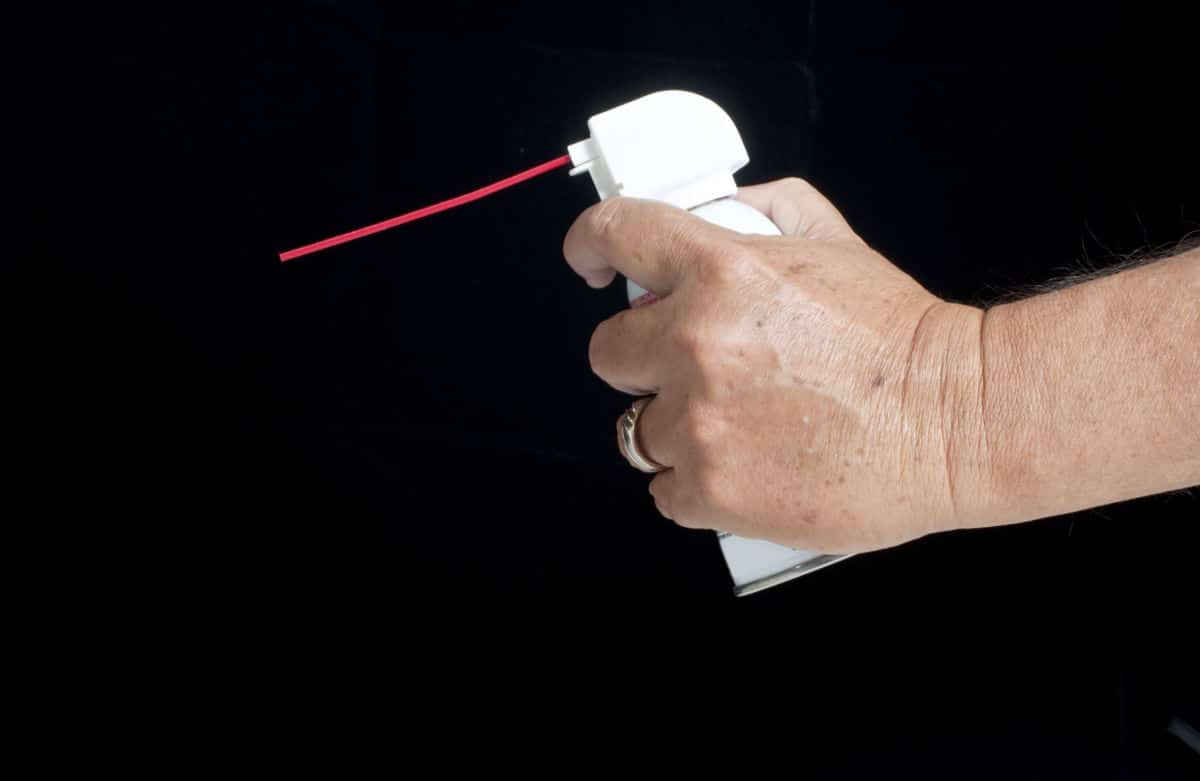
When you think about air dusters, the first thing you gravitate towards is that they’re used to clear dust and dirt from hard-to-reach areas. This is the main purpose of air dusting, but not all products are used for their intended purpose, and huffing air dusters is a way some people create euphoric highs. Huffing air dusters can do more harm than good when consumed this way, and that’s without including the fact that it’s an illegal thing to do. Let’s explore what air dusters do to you and how psychotherapy programs and other recovery programs can help prevent one from huffing air dusters.
How Does Huffing Air Dusters Work?
Individuals huff by spraying air duster fumes into a piece of cloth and inhaling it. The compressed gasses create an effect on the central nervous system that creates a high. Air duster highs are short-term feelings but can cause heart damage and even lead to a coma or death. Addiction to air dusters isn’t as common, but it certainly is possible.
Air dusters also go by a few common names, including huffing, dusting, or can of sunshine. It’s important to remember that inhaling canned air is illegal and dangerous, and the side effects are not worth the temporary high.
The Risks of Huffing Air Dusters
Huffing air dusters produces tons of damage to your body, especially over time. The high usually only lasts a few minutes, meaning individuals often inhale an extreme amount of the gas to produce long-lasting effects. The chemicals travel towards the brain and impact its ability to control mobility, leading to struggles in moving around.
Eventually, the substances wear away at the myelin membrane, responsible for quickly transmitting electrical impulses to cells. As this disease wears away, it can lead to diseases like multiple sclerosis and impaired mobility and cognitive abilities.
There are plenty of other risks to consider, including:
- Heart Irregularities
- Difficulty Breathing
- Unconsciousness
- Abnormal Kidney Functions
- Liver Damage
- Convulsions
- Bone Marrow Damage
- Vomiting
- Sudden Death
How Can I Tell if Someone Is Abusing Air Dusters?
Inhaling air dusters produces many effects that make it clear that something is up. Most individuals who inhale air dusters are young teenagers and adolescents who are new to the impact of drugs. Inhaling these drugs create various effects, including:
- Lightheadedness
- Slurred Speech
- Uncoordinated Movements
- Hallucinations
- Headaches
- Dizziness
- Drowsiness
If you’re a parent who finds an air duster in your child’s room and thinks they might be inhaling it, don’t just throw away the air duster and call it a day. This can be a serious problem, and it’s important to get your child the help they need. These products are extremely easy to achieve, so don’t ignore the signs and reach out to Steps to Recovery or your local treatment center for assistance.
While addictions aren’t as common, you should still be aware of the signs that someone may need addiction treatment or care for their substance use disorder. These signs include:
- Large Supply of Air Dusters at Home
- Facial Rashes
- Constant Sore Throats
- Weight Changes
- Mood Changes
- Spending Too Much Time Alone
- Lack of Interest in Favorite Hobbies
- Lack of or Changes in Appetite
- Issues With Relationships
- Irregular Sleeping Habits
Find Help for Canned Duster Abuse With Steps to Recovery
You may not have associated air dusters with anything but removing dust, but they’re often used for more. The chemicals inside may provide temporary euphoric feelings, but they can lead to long-term problems that damage organs and can even lead to fatalities. Huffing compressed air may not always be addictive, but it doesn’t mean someone can’t abuse the substance. If you or someone you know is misusing air dusters and needs help, contact Steps to Recovery today at 866-488-8349 and explore how we help you battle substance abuse problems.
Sources:
https://www.medicalnewstoday.com/articles/duster-drug#summary
Explore this article:
Explore Our Facilities
Drug and alcohol detox and residential treatment for addiction and mental health disorders
Outpatient treatment center for substance use disorder and mental health disorders
Outpatient treatment center for substance use disorder and co-occurring mental health disorders







